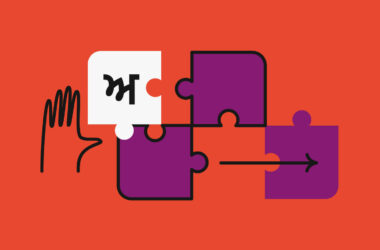Personal loans, or PL for short, offers a fixed interest rate (IR) and a fixed term and are distributed as lump sums. If you want to learn about various types of PLs and how these things work, continue reading this article. Suppose you need money for your next vacation, big purchases, wedding.
In that case, if you want to consolidate your debts or need money to cover unexpected medical emergencies, personal debentures can provide the flexibility you need to help cover unplanned and planned expenses without breaking your bank or spending your savings. If borrowers are not familiar with this kind of debenture and how these things work, this article will be a huge help.
What are personal loans?
Personal or signature loans are types of installment loans. These things are approved for a set amount as well as expected to be paid back in installments or regular intervals. It is disbursed to borrowers in one annuity payment with installment payments usually charged on the same day every month. Financial institutions like traditional banks, credit unions, or lending firms may offer PLs with either variable or fixed IR.
People may qualify for the lowest IR if they have good credit scores. The payment term or period is usually no less than twelve months and may extend to at least five years and not more than thirty years. The account is closed once the debenture is fully paid. To get additional debenture funds, people need to reapply.
To find out more about how banks work, click here for details.
Various types of personal debentures
There are limitations and advantages to the two kinds of PLs. The borrower’s specific financial needs may be more advantageous compared to other types.
Secured PLs
This type of debenture is backed by collateral which lending firms can seize if the individual fails to repay the debenture in the agreed-upon term. The limit is based on the property’s value being used as collateral.
Unsecured PLs
Unsecured loans do not need collateral. The approval of this debenture is based on the person’s credit history, employment history, household income, and other specific requirements set by lending firms. The person’s ability to receive the lowest IRs and loan amount will rely on the borrower’s credit score, as well as their financial situation. These things can exceed that of the average CC.

Are these things the same as reserve LOCs?
Similar to PLs, approval decisions for reserve LOCs are based on borrowers’ credit history, as well as their financial situations. A LOC provides access to money up to approved credit limits. With reserved LOCs, people are borrowing against available credits as needed. This way, their LOC works similarly to credit cards. Monthly amortizations are only needed when people have outstanding balances and only pay interest on borrowed funds.
The account will stay open, and individuals can continue borrowing as long as they repay the debenture according to their loan agreement with financial institutions. Use the available funds again without looking or reapplying for a new approval. Individuals can access these LOCs by transferring the funds into their savings or checking accounts. Even though lending firms set credit line limits, borrowers decide how they will use these funds.
Personal debentures versus other types of loans
Although all debentures need to be repaid, various debenture types have different requirements. The IRs and payment terms available from lending firms may differ depending on the credit they choose. The advantage of using PLs and LOCs is that people are allowed to spend the funds on whatever they wish. With other types of debentures, certain restrictions apply. For instance:
Car loans are secured by the car. Money received for the car debenture need to be used to buy the car. But a car debenture refinance may provide people with excess money along with more favorable IRs, but the automobile still serves as the loan’s collateral.
Student debentures need to be used for expenses related to the borrower’s education. No collaterals are needed, but there may be serious consequences for using funds for anything other than the cost of their education, such as books or tuition fees.

Business debentures are readily available only for operational-related expenses and commercial entities. They are not readily available to pay personal CC debts. Business loans may need collateral like business assets, valuable equipment, or real estate. Lending agreements outline specific uses and limitations of various loans, including whether funds must be used for certain purposes.
If people violate these conditions or terms, lending firms could take legal action against borrowers. That is why people must have a complete understanding of the debenture requirements, as well as the risk to their properties that were offered as collateral.
Want to know more about personal credits? Visit sites like https://www.billiglånutensikkerhet.com/for details.
Other benefits of reserved LOCs or personal debentures
There are other ways reserved LOCs or PLs can be beneficial to people’s lives:
- Both types of credits contribute to a person’s credit score
- Borrowers can decide how the money is used
- If the person’s emergency fund is depleted, both credits can be a low-IR option to bridge this gap
- IRs are lower compared to most cards and payday loans
- Collateral is not needed, even when using the money for auto-related or home expenses
Personal debentures provide individuals with a way to access funds for their personal expenses. A favorable repayment term, as well as low IR, make these things an attractive alternative compared to credit cards and payday loans. Financial institutions have competitive PL and reserve LOC options that can meet people’s needs.







